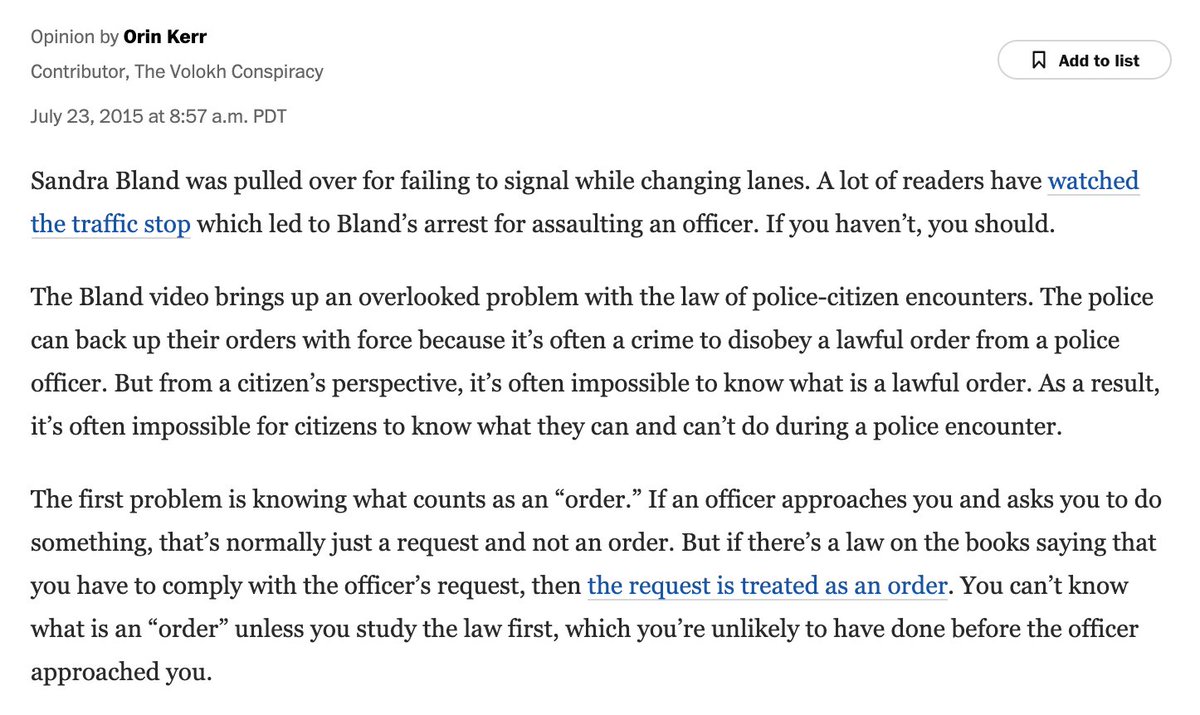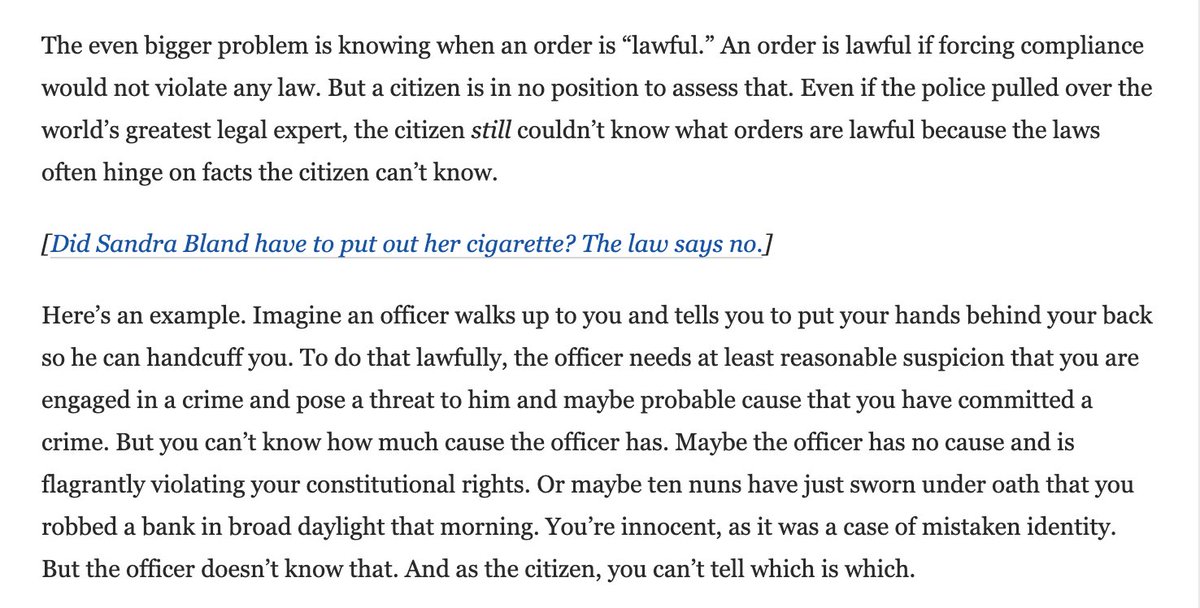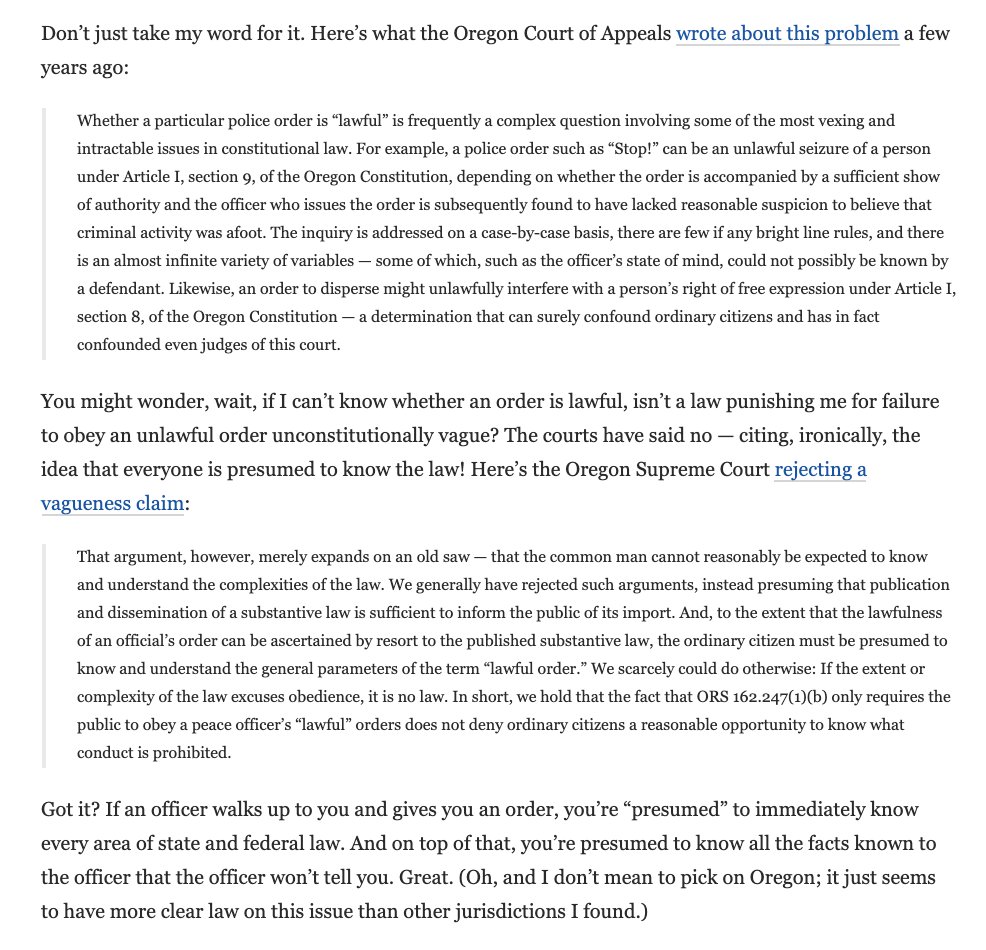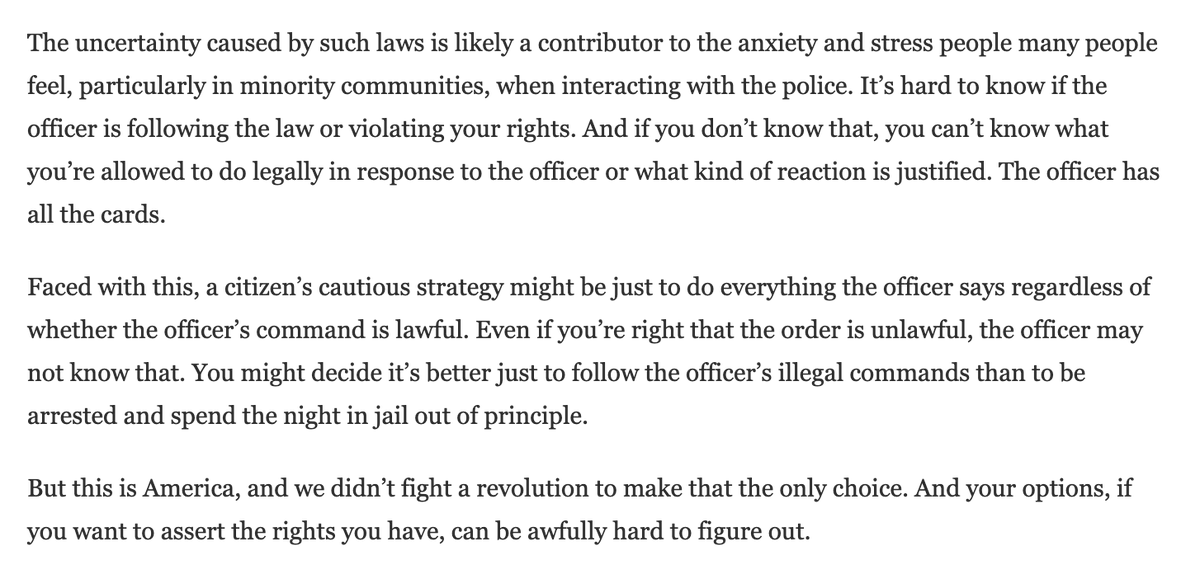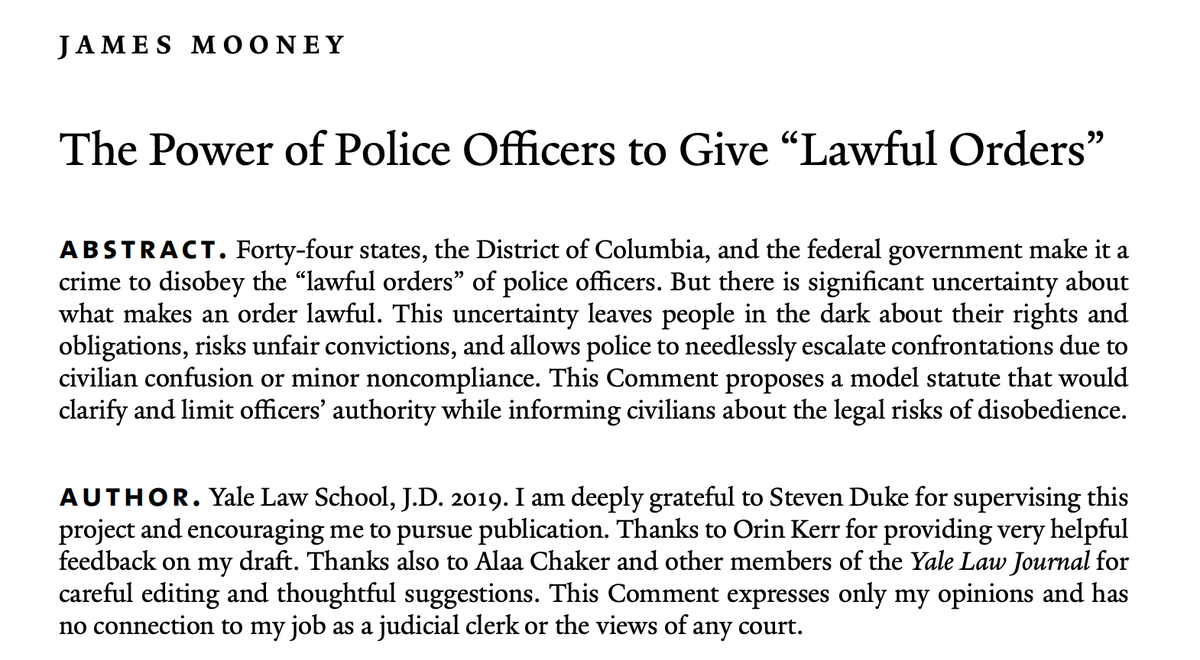There& #39;s a lot to be said about the traffic stop of Lieutenant Caron Nazario, but one of them is that it makes this 2015 blog post unfortunately relevant again:
"Sandra Bland and the & #39;Lawful Order’ Problem."
(Given the paywall, I& #39;ll include screenshots.)
https://www.washingtonpost.com/news/volokh-conspiracy/wp/2015/07/23/sandra-bland-and-the-lawful-order-problem/">https://www.washingtonpost.com/news/volo...
"Sandra Bland and the & #39;Lawful Order’ Problem."
(Given the paywall, I& #39;ll include screenshots.)
https://www.washingtonpost.com/news/volokh-conspiracy/wp/2015/07/23/sandra-bland-and-the-lawful-order-problem/">https://www.washingtonpost.com/news/volo...
In this case, one of the (many) problems was that the officers were coming in with one view of their lawful order authority and Lt. Nazario very understandably had no idea of what that was. Here& #39;s why.
The officers are trained about the Supreme Court& #39;s decision in Pennsylvania v. Mimms, 434 U.S. 106 (1977). Mimms lets officers order the driver of the car out of the car during a traffic stop. They don& #39;t need specific cause to do that, Mimms says. They don& #39;t need to say why.
An officer trained on Mimms will know that he can order anyone stopped out of the car, with no reason and no stated reason. And he& #39;s also know that refusal to obey that order is a crime -- it& #39;s refusal to obey a lawful order.
But of course most people WON& #39;T KNOW THAT. It& #39;s understandable that a driver ordered out of the car will want to know why. What is happening? Why order him out of the car? What is the officer doing? And here, all that, with *multiple guns drawn already,* yikes.
The driver and the officers are in two totally different mental worlds. The driver is understandably wanting to know what the heck is going on. The officers are meanwhile thinking, "why is this person committing the crime of refusing my lawful order?"
I& #39;ve wondered if one way of defusing these situations would be for officers to be required to explain the law to the drivers. Perhaps: "sir, I am giving you what the law calls a lawful order. Under the law, I am allowed to order you out of the car. It is a crime to refuse."
That& #39;s not perfect wording, I realize. But the thought is that *something* to bridge the gap between those two mental worlds would be really important.
Here& #39;s a recent student note offering a statutory proposal somewhat along those lines.
https://www.yalelawjournal.org/pdf/MooneyComment_6w54gon8.pdf">https://www.yalelawjournal.org/pdf/Moone...
https://www.yalelawjournal.org/pdf/MooneyComment_6w54gon8.pdf">https://www.yalelawjournal.org/pdf/Moone...

 Read on Twitter
Read on Twitter